Start your brand development with consumer research first. We worked hard on this, but it is so important to constantly evaluate who your customer is today, and who they will be tomorrow. We might have launched with a different product format if we wanted to sell to more established cannabis consumers in our early months, but as cannabis consumer profiles evolve and new audiences enter the marketplace, products will need to speak to those evolving needs. It is quite hard for cash-strapped startups to provide options for every consumer that walks into a store. Also, be careful about marketing to a customer that does not exist yet, or one that no longer exists.
I had the pleasure of interviewing Michael Christopher. Michael overcame debilitating childhood lung ailments (double pneumonia) and adult-asthma to become a full scholarship collegiate athlete who went on to launch multiple startup businesses across entertainment, media, mobile software and CPG industries. He served as former Activations Director and the third hire for BreadcrumbPro Point-of-Sale (acquired by Groupon, Inc. in 2012) where he led product activations from beta launch to serving over 5000 active mobile payments and point-of-sale merchants across the nation, processing thousands of orders and hundreds of millions of dollars of payments for restaurants, cafes, bars and nightclubs. He then went on to serve as Business Development Director at Rodawg (renamed BUREAU) — a child-resistant cannabis packaging manufacturing startup serving licensed medical cannabis company clients in Colorado, Washington, Oregon, Canada, and Uruguay. More recently he served as digital advisor and Managing Partner of CH3 Ventures — a Manhattan based cannabis technology startup incubator and investment firm focused on early stage technology, compliance and media companies. Michael also co-founded NYC based new media production agency Sonic Platforms, with brand clients including BMW, Urban Outfitters, MoMA, Champion Sportswear and The Crated. During that time, Michael launched LOFT Infusions in 2014 — a first-to-market NY-based hemp CBD-infused beverage company along with his co-founding partner and healthy beverage pioneer, Eric Schnell. They both went on to co-create and launch the mood33 cannabis infused sparkling tonics brand, where Michael now serves full-time as Chief Mood Officer based in Santa Monica, California. mood33 cannabis infused beverages are sold throughout the state of California and can be found at leading licensed cannabis retailers like MedMen, Harborside, Harvest, Caliva, ShowGrow, among others.
Thank you for joining us! Can you share with us the story about what brought you to this specific career path?
Crafting a cannabis-infused beverage line, mood33, is a life mission that resulted after a few formative life events which led me to my passion for legal cannabis and my career path in the legal cannabis industry.
I contracted a lung-related illness at age 7, which I thankfully survived after having multiple surgeries and spending a large part of my second-grade school year in the Boston Children’s Hospital. That experience really formulated my understanding of life, death and overall lung health (or lack thereof) at an early age. Thanks to some great doctors and rehabilitation specialists, I overcame the side effects that I carried into adulthood — namely severe asthma and lung capacity issues — to play college baseball. Like many young adults, I realized cannabis was not only a readily accessible source of enjoyment and relaxation, but was actually a secret recovery tool for athletes in the offseason. With my lung issues, smoking the cannabis plant for the anti-inflammatory and pain relief benefits was not a great option, and it was still very illegal at the time. I remember my 18 year old self thinking, “We drink for hydration, nutrition, medication, relaxation and socialization, but why can’t we drink cannabis? Maybe that would remove some stigma and allow regular consumers to access it legally one day?” This sentiment has stuck with me for almost 15 years, and drove me and my partners to bring mood33 into the world many years later.
Overall, I wanted to create better, healthier, smoke-free cannabis experiences via beverages that are more in the vain of kombucha, green tea and herbal tonics. I had hopes of normalizing cannabis and bringing the plant into the homes of regular people — the stressed-out soccer mom, the overworked professional, the injured athlete, the grandmother with lung issues, the uncle with PTSD. If we ever wanted cannabis to become legal on the federal level, all demographics would need convincing. With that, I noticed that the cannabis industry needed more mainstream brands and products if it ever wanted to become a mainstream better-for-you category like coffee and tea, but with the market size potential of a fun-for-you category such as wine, beer and liquor. This is the main, overarching goal for the passionate entrepreneurs in my industry. While we all may operate within different verticals as brands, cultivators, scientists and marketers, the social good that cannabis legalization will provide is of an incalculable magnitude.
Can you share the most interesting story that happened to you since you began leading your company?
I always love the story of one our first angel investors who was considering supporting mood33 in the first month of our launch in August 2018. At that time, we had just a handful of accounts and very little sales. However, the investor had traveled to the Bay Area for a Phish concert and saw two attendees tailgating in the parking lot drinking mood33. Apparently they had just purchased the product at Harborside Oakland, the second account we sold into. The chances of that happening were pretty low considering we had just started selling at Harborside that very week, so it’s a great story we will continue to share as we grow.
Can you share a story about the funniest mistake you made when you were first starting? Can you tell us what lesson you learned from that?
I am not sure if this is more funny or just plain ironic, but when we began building our line of CBD-only beverage products in 2014 and 2015 from New York City, CBD — Cannabidiol, the non-psychoactive molecule in hemp and cannabis plants known for numerous health and wellness benefits — was still very new in the minds of consumers. This resulted in our inability to find early third party funding sources and wholesale distribution for our CBD-only products at the time. Being too early in the startup world would lead to failure, and this was a very tricky time for the company. However, this obstacle propelled us to double down on moving the brand to California, where THC and CBD products are completely legal in licensed retailers. Now that CBD is all the rage, we receive inbound requests from celebrities, investors and distributors requesting products.
Are you working on any exciting projects now?
We are working hard on our fourth SKU that will launch on April 20, 2019. This new flavor, PEACE, has been in development for quite some time and mirrors our other mood-based formulations (JOY, PASSION, CALM). We are excited to be launching this new CBD-focused SKU, which is a great option for consumers looking for the benefits of the cannabis plant without the euphoria that THC brings.
We are also excited to launch our forthcoming interactive media experience for trade shows and public tasting events. This is an AI-enabled facial recognition experience that will take a snapshot of your face and analyze your current mood-state in order to predict which mood33 product would be best for you at that given moment. Cannabis brands are quite limited on their ability to market and advertise to the public, so using fun technology and new means of brand activation are necessary. We are eager to help educate the masses about mood33 and legal cannabis products.

None of us are able to achieve success without some help along the way. Is there a particular person who you are grateful towards who helped get you to where you are? Can you share a story?
My former boss at Groupon and CEO of hospitality focused point-of-sale platform BreadcrumbPro, Seth Harris, is a pretty influential person to my professional development. Watching him lead our young startup through an acquisition by a large software/ad-tech company (Groupon, Inc.) helped me formulate my approach to starting and running a startup business. The difficultly in managing such a high-growth startup and large transition was stressful and problematic for everyone involved, and Seth’s commitment to succeed was a core driver in motivating the rest of the organization.
This industry is young, dynamic and creative. Do you use any clever and innovative marketing strategies that you think large legacy companies should consider adopting?
As a highly regulated cannabis brand in California, our ability to market is severely limited. We cannot leverage the advertising power of social media platforms and content hubs like Facebook, Instagram, Google and YouTube. With that being said, our marketing efforts are largely focused on in-store education, merchandising and word-of-mouth. We are working on a very strong content strategy with some great photographers, artists, musicians and influencers that should really help educate cannabis-friendly audiences about mood33.
Can you share 3 things that most excite you about the cannabis industry? Can you share 3 things that most concern you?
A) Exciting
1) New Consumers are entering the industry and that is amazing. Stigmas are being removed in consumers minds each day, and having the opportunity to create safe and reliable product experiences for new audiences in need of legal cannabis is very exciting. In addition, professional athletes are now supporting the industry and helping educate stakeholders about the benefits of legal cannabis (I.E. Joe Montana with Caliva). This is desperately needed and appreciated by the entrepreneurs risking everything to build the cannabis industry.
2) Hemp was legalized for agricultural and industrial cultivation and manufacturing in the United States with the Agricultural Improvement Act of 2018 (US Farm Bill), which is a great advancement for consumers, farmers and industry stakeholders. Hemp is a great pathway to educate consumers about the benefits of non-psychoactive cannabinoids like CBD, and offers many industrial uses that outperform petrochemical manufactured products.
3) The World Health Organization recently announced that it will be rescheduling cannabis and is calling upon the United Nations to acknowledge the medicinal benefits of the cannabis plant. This is a necessary step for full repeal of cannabis prohibition in the United States.
B) Concerning
1) No regulation of CBD online. CBD has become a panacea for many ailments in the consciousness of consumers due to the proliferation of information on the internet. However, this has also resulted in a vast, unregulated online marketplace of untested and unsafe CBD-infused products manufactured for human consumption. Unsafe or adulterated products might reach consumers without proper medical, supplement or food and beverage regulations, and are a risk to the entire cannabis legalization effort. We want to see CBD regulated like any other functional ingredient in food products, and the FDA is the key to this industry problem.
2) Over-regulation and taxation of THC in state sanctioned marketplaces, like California. We are still competing with a very healthy black market, resulting from high state and local taxes imposed by legislators that see cannabis legalization as a solution to budget issues and deficits. While cannabis can improve communities through taxation as seen in Colorado, over-taxation to the point where price competitiveness pushes consumers to illegal black market dealers and unlicensed retailers is the harm. Losing sales to the black market makes it very hard for licensed cultivators, product manufacturers and retailers to reach profitability, and has caused many business closures already. This hurts the entire industry and reduces consumer access to affordable legal cannabis products.
3) No access to banking for licensed cannabis stakeholders. Until the federal government repeals cannabis prohibition, federally insured banks are not allowed to bank cannabis revenues. This results in a largely cash-only industry that offers no ability to finance itself or accept digital and credit card payments. In addition, being a cash-only industry brings a high propensity for loss/robbery, criminal activity and tax evasion by bad actors.
Can you share your “5 Things I Wish Someone Told Me Before I Started Leading a Cannabis Business”? Please share a story or example for each.
1) Triple your expected cash needs and timeline for growth.
Industry regulations, in addition a very fragmented framework for compliant manufacturing and distribution, delay every step in the process in bringing a new product to market. In our case, we have re-designed and re-printed exterior packaging seven times due to new regulations in less than a year.
2) Start your brand development with consumer research first.
We worked hard on this, but it is so important to constantly evaluate who your customer is today, and who they will be tomorrow. We might have launched with a different product format if we wanted to sell to more established cannabis consumers in our early months, but as cannabis consumer profiles evolve and new audiences enter the marketplace, products will need to speak to those evolving needs. It is quite hard for cash-strapped startups to provide options for every consumer that walks into a store. Also, be careful about marketing to a customer that does not exist yet, or one that no longer exists.
3) Expect to delay important life events and family decisions until you are profitable.
I got married to my wife two years into mood33’s research and development process, so our proper wedding and honeymoon are still ‘to be determined,’ and plans for children are delayed as well. These are some examples of the sacrifices required to self-start a business in this fast-moving industry.
4) Own your city before you consider expansion to another territory, state or marketplace.
Too many companies are trying to become the next Coca-Cola or Budweiser of legal cannabis, and they often expand too quickly into new markets before truly owning their home markets. We chose to build mood33 in California because it is a perfect place to build a cannabis beverage brand, and until every cannabis consumer from SoCal to the Bay Area knows of mood33, we will be focused on building our brand in our home regions first.
5) Be inclusive.
We have a large responsibility to share the opportunities that arise with cannabis legalization with those who have been harmed by harmful drug-laws in the past, or those who have been marginalized in other industries due to race, nationality, disability or gender. The practice of using this new market and social movement to improve social equality is an amazing opportunity for all stakeholders in legal cannabis.
What advice would you give to other CEOs or Founders to help their employees to thrive?
I came from SaaS, mobile software and ad-technology industries before entering the legal cannabis space in 2012, and I have worked for some great managers, presidents and CEOs in the NYC tech world. Good CEOs drive productivity and profitability in every respect as a leader, no matter the strategic initiative or budget. Great CEOs do that too, but do so by cultivating an organization composed of complimentary talent. In this scenario, each partner and employee feels ownership and responsibility to their contributions to the bottom line of the company, with a clear understanding of their value to the team.
As a former baseball player, which is a great team sport, this is very critical to me. Creating a management team that brings more expertise to the organization than the CEO is essential to a winning team. If the CEO thinks and acts like he/she has all the answers and can do a better job than his own employees, a culture of anti-collaboration and fear is created. I see a lot of this in high-growth startups.
I think the entire goal of a CEO is to set a tone for how different employees that operate within a division of an organization interact and cross-collaborate to find the harmony required for sustainable growth. Sustainable growth encompasses not only business objectives and financial outcomes for investors and product experiences for end-consumers, but also factors the health and relationships of the people a CEO hires.
You are a person of great influence. If you could inspire a movement that would bring the most amount of good to the most amount of people, what would that be?
Our vision for creating a legal cannabis brand was synthesized around a cannabis product experience that was smoke-free as well as health and wellness focused. If we could bring awareness and innovation to an industry that is socially acceptable as much as typical food or beverage products and health are wellness supplements are, then we are succeeding in our mission. We have an immensely important opportunity to free the cannabis plant, and unlock its full potential as a pathway for sustainable, natural, plant-based solutions for improved nutrition, mental and physical health and physiological homeostasis. The best way to leverage our early success in the legal cannabis industry is to inspire other founders, entrepreneurs, stakeholders and larger companies to take on the same mission.
What is the best way our readers can follow you on social media?
Personal:
https://www.linkedin.com/in/michaelchristopher44/
or mc@mood33.com
Company:
https://www.instagram.com/mood33infusions/
https://www.linkedin.com/company/18522263/


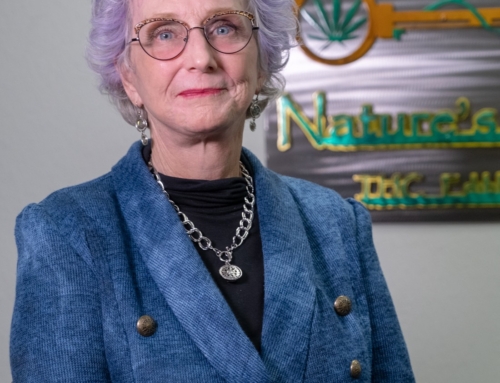
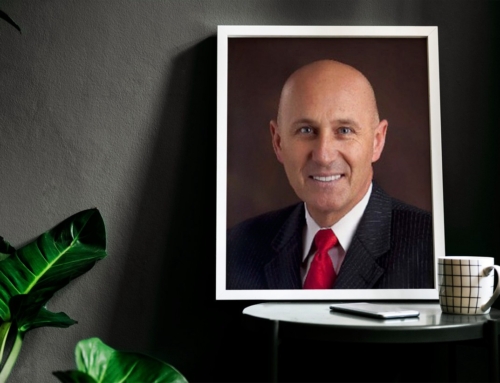
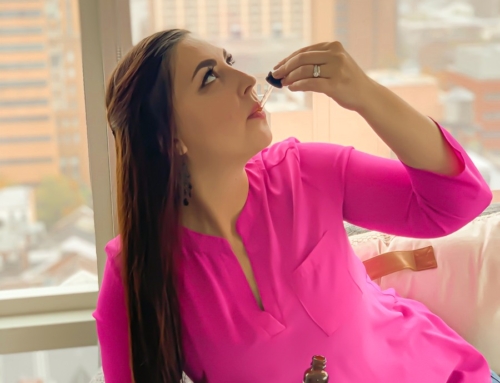

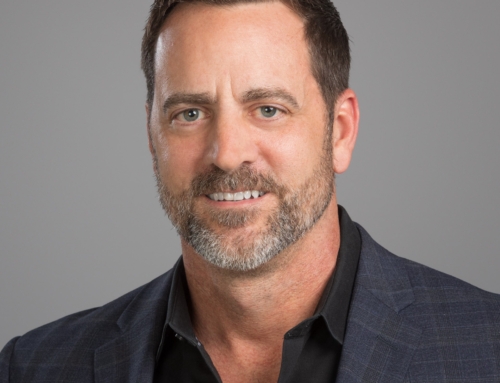
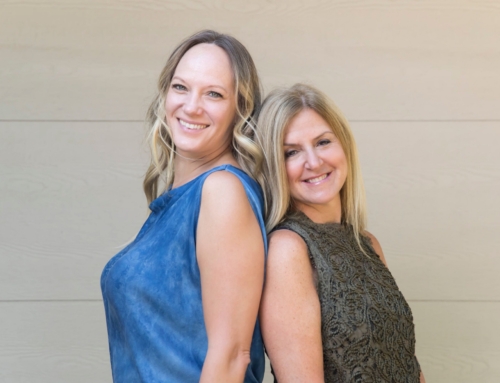
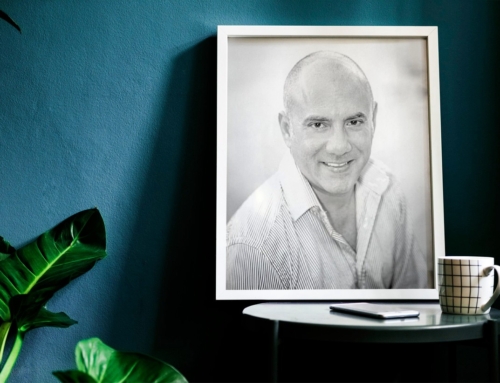
![“The potential to help people [in this industry] is enormous, but there’s still so much to learn.” – Ramon Alarcon, Witi](https://lakesideremedy.com/wp-content/uploads/2020/12/1thj5ekUyxQ69iLz1JJyODg-scaled-e1607882756286-500x383.jpeg)
